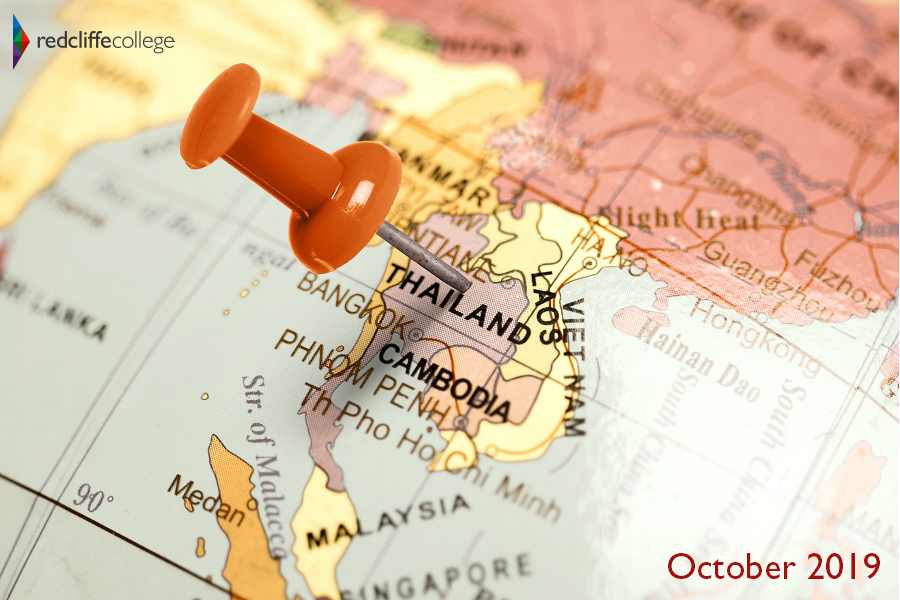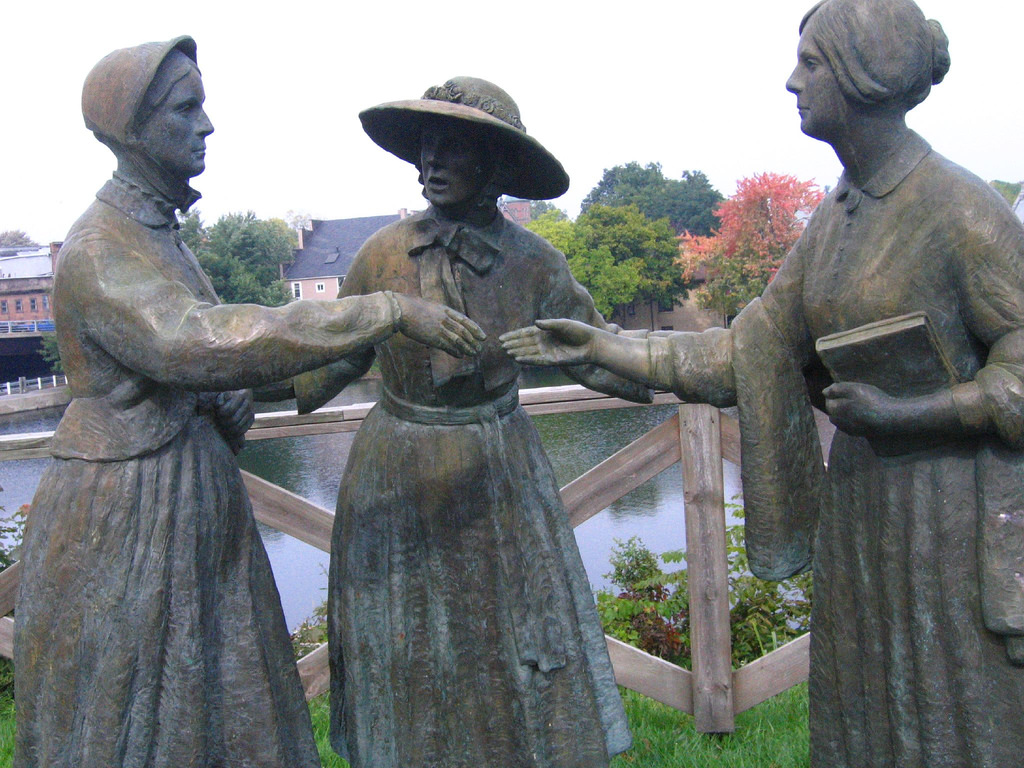“Flexibly study what you do, while you do it, wherever you are.”
Redcliffe’s MA programmes are designed to equip and empower people for mission and ministry wherever they are in the world. We aim to train reflective practitioners so we encourage students to relate their studies always to their current role and context.
Another of our key goals is to enable people to study without having to take significant time out of their normal work or ministry. We also aim to keep our training as affordable as possible. These are some of the reasons why we have launched our international hubs, bringing Redcliffe’s unique MAs to various parts of the world.
In addition to our original “home” hub in Gloucester, England, we also now offer our programmes in Oceania (alternating years between Australia and New Zealand) and from 2019 in Asia with a hub in Chiang Mai, Thailand. The Oceania hub has its intensives for two weeks in January-February each year, and the Asia hub for two weeks in October each year.

The Gloucester Summer School will continue to run for three weeks every July. This gives a great amount of flexibility for people not only to study at the hub nearest to them, but also at the time of year best suited to them. To give further possibilities, we are working on a London-based hub as well which will run purely by weekend mode rather than requiring a two or three-week intensive.
The Oceania hub is based in two wonderful locations: in Sydney we are hosted by Morling College, and make a trip part way through to the beautiful Tahlee Centre for Creation Care (A Rocha) to think about environmental mission, whilst in New Zealand we use as our venue Eastwest College near Hamilton.
At the Gloucester hub students can take our full range of programmes: either the MA in Leadership in a Complex World, the MA in Member Care, or the MA in Contemporary Missiology, which has several possible streams including Justice, Advocacy and Reconciliation; European Mission; Bible and Mission.
Students can do a general Contemporary Missiology degree where they choose from our many other optional modules, shaping it to their particular interest: these include Life and Work in Muslim Contexts; Gender and Mission; Vulnerable Children; or an Independent Study Module where someone writes on another subject of interest to them with the help of a supervisor.
We are offering a slightly pared-down version of this at the international hubs, delivering our Leadership and Member Care programmes and the two foundational Missiology Modules.
This means students can do a full Masters in Member Care or Leadership by attending either Oceania or Asia, but if they wish to do a full Contemporary Missiology degree, they can take two missiology modules in their nearest hub, and then attend the Gloucester hub another year to take two further options. We even have one student who is considering taking a module at each of our three current hubs!
As well as bringing the delivery of the teaching nearer to our students, our Masters programmes also benefit greatly from the resulting exposure to life and Christian witness in the different parts of the world. We are always seeking to broaden our reading lists and bring global voices to bear on the missional issues and areas we cover.
Drawing on scholarship and bringing in visiting lecturers in the locations of our hubs is a good way to do this. In New Zealand for example we had some sessions with a Maori couple who had done mission work in Eurasia for several years. We visited their local marai (meeting place) and heard from them both about their experience of doing missions as Maori, and about contextualizing Christianity in Maori culture.
At the same time we acquired the recent book Huia Come Home (2017) by Jay Ruka,  which reflects on the history of Christianity in New Zealand and how the gospel is enhanced by seeing it through a Maori lens – a great example to bring into our teaching on contextualisation. As missiologists we are excited to bring our MAs to different parts of the world and to learn from the people we encounter there ourselves.
which reflects on the history of Christianity in New Zealand and how the gospel is enhanced by seeing it through a Maori lens – a great example to bring into our teaching on contextualisation. As missiologists we are excited to bring our MAs to different parts of the world and to learn from the people we encounter there ourselves.
You can find out more about our MA programmes, course content, dates and fees by going to https://www.redcliffe.ac.uk – and for further information contact the College Administrator on study@redcliffe.ac.uk.
Main Photo Credit: Juliana Kozoski

